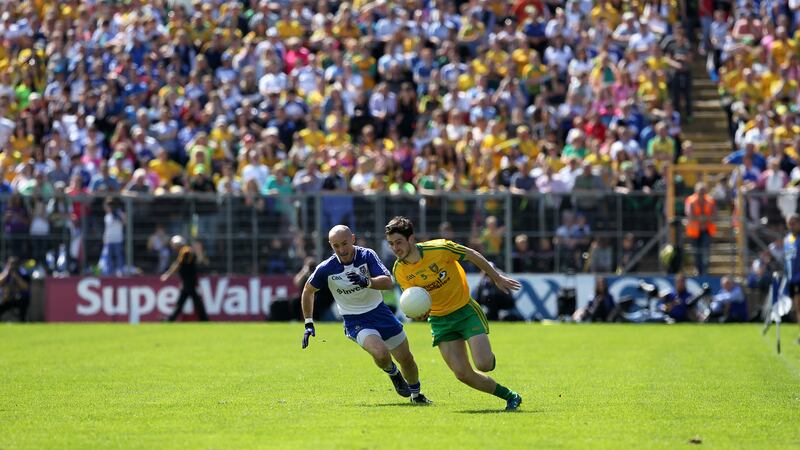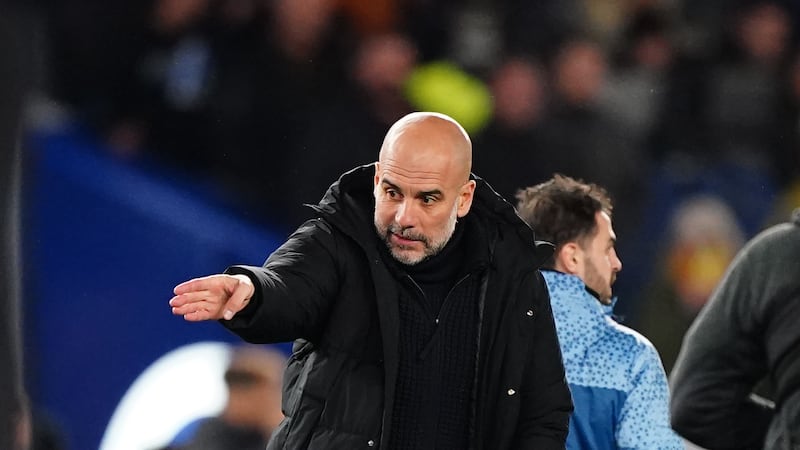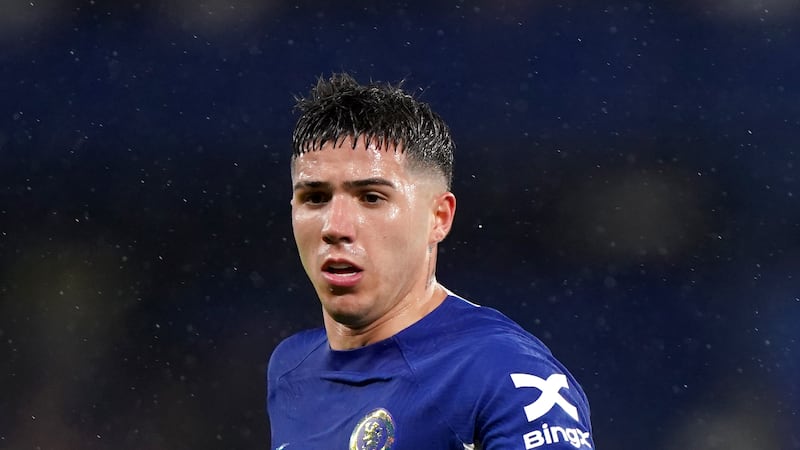RYAN McHUGH’S explanation for Donegal’s defeat to Monaghan the Ulster final might seem incredibly simple, but the match statistics support his reasons.
Commenting on where it all went wrong for Donegal in the provincial final, the 21-year-old said: “I don’t think we did a hell of a lot wrong”.
McHugh was adamant the result boiled down to a few off target shots.
“If we had taken a few more scores, the result could have been different,” he said.
“We kicked a hell of a lot of wides. To be fair to the lads, down through the years, that’s not something they would normally do. If you look back through the years, those wides normally went over the bar.
"We didn’t do a hell of a lot wrong. On another day, a few of those shots could have gone over the bar and we would have been Ulster champions. But you have to take your hat off to Monaghan. They went out with a gameplan and they produced it to the letter of the law. They deserved their victory on the day.”
McHugh’s argument can be supported with hard evidence. In the build-up to the provincial final, the Ulster Council’s Kevin McGuigan analysed the performances of both teams. Using the data from those games, McGuigan predicted that “Donegal would win the kick-out battle, Monaghan would be more productive with their possession; and the ultimate outcome would be a draw, with the possibility of a marginal Monaghan victory owing largely to their better use of possession.”
McGuigan’s forecast was uncannily accurate. In his analysis of the Ulster final, McGuigan observed that Monaghan’s one-point victory was the result of their superior conversion rate. Reporting on the Ulster GAA website, he noted: “Monaghan converted 27 per cent of their possessions to scores, while Donegal only managed 21 per cent despite having greater possession share and, ultimately, having more shots (28 versus Monaghan’s 26).”
In Donegal’s previous victories, their conversion rate ranged between 50 and 60 per cent. Against Monaghan, they kicked 14 wides, and their conversion rate plummeted to 36 per cent.
Although rocked by the defeat to Monaghan, McHugh said Donegal were keen to exploit the opportunity afforded by the Qualifiers, and their round four game against Galway.
“There was obviously huge disappointment after the game," he added.
"An Ulster final defeat is not an easy thing to get over. We went into the game expecting to win and that didn’t happen. Obviously, there is huge disappointment in the camp.
"But in football, there is always another day. We are lucky enough to get another chance. Boys in other days didn’t get a second chance. We are lucky enough to have that. We just have to pick ourselves up. We are looking forward to the Galway game. We are looking forward to showing what we can actually do in Croke Park.”
Pointing to Galway’s previous victories over Armagh and Derry, McHugh said Donegal were expecting a tough game against the Tribes men.
Having won the All-Ireland U21 title in 2011 and '13, Galway are starting to build a team from the graduates of those victorious squads. Damien Comer was the star forward in the 2011 team. Shane Walsh and Danny Cummins were the main scorers in 2013, while the midfield duo of Tom Flynn and Fiontán Ó Curraoin backboned both teams.
“They have great forwards,” said McHugh.
“Gary Rice and Comer, and it was great to see Shane Walsh back on the pitch against Derry. He’s a great footballer and it’s great to see him back playing.
“Those players are not going to be easy marked. Then they have the two big midfielders. I would say there isn’t two bigger midfielders in Ireland. It’s going to be very tough. Derry ran us all the way and Galway overcame them comfortably.
"It’s going to be tough, but football is never easy these days.”








